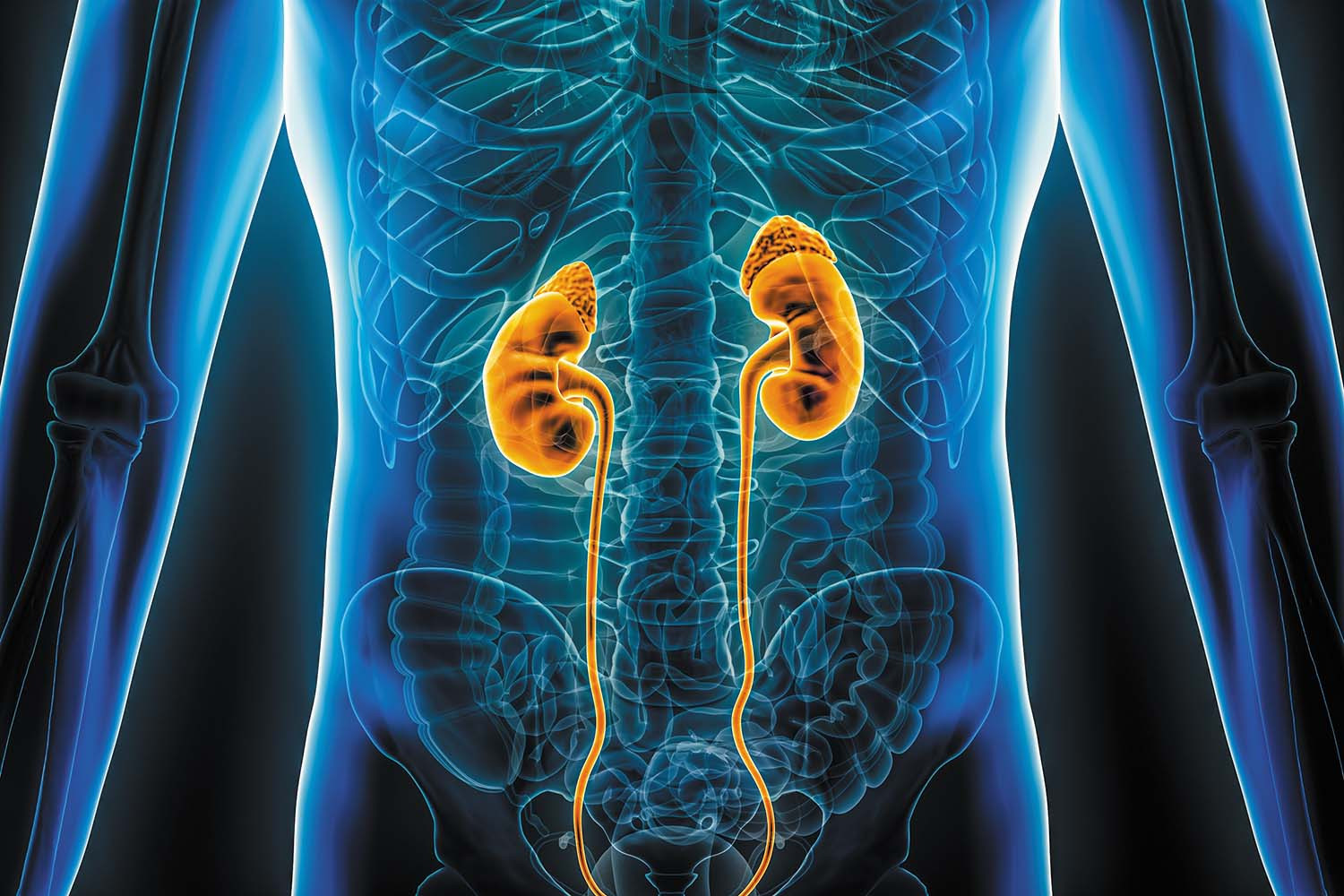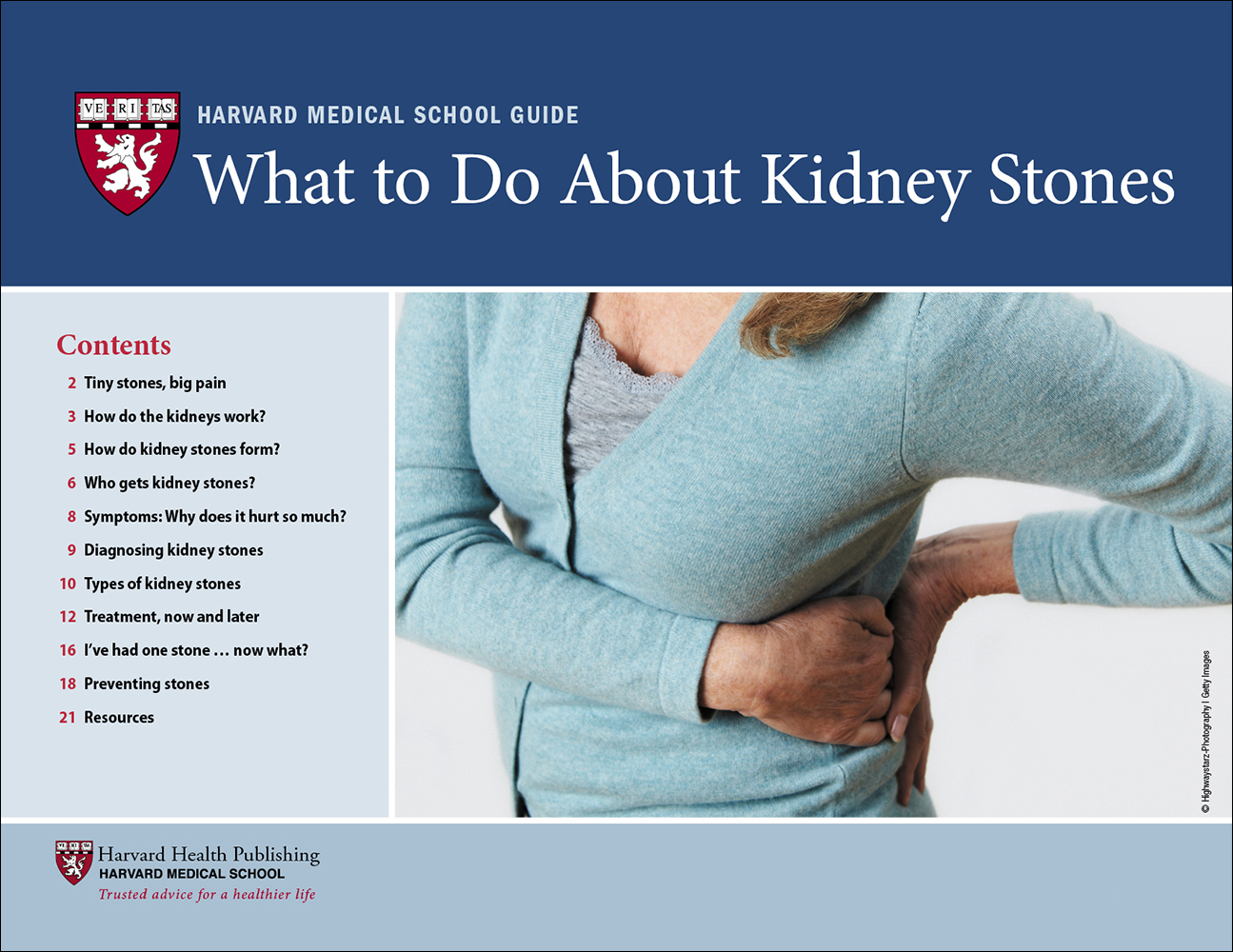Caring for your kidneys
How can you protect these organs from future damage?
- Reviewed by Howard E. LeWine, MD, Chief Medical Editor, Harvard Health Publishing; Editorial Advisory Board Member, Harvard Health Publishing

When we talk about keeping our organs healthy, the heart and brain get all the attention, for obvious reasons. However, the kidneys also require the same consideration.
The pair of organs, located on either side of the spine just below your rib cage, perform many essential functions. They route blood through a complex filtering system that removes toxins and balances the levels of fluids, salt, and other minerals. The kidneys also help regulate blood pressure and assist with red blood cell production.
The No. 1 health problem for the kidneys is chronic kidney disease (CKD), an irreversible decline in kidney function that affects an estimated 37 million American adults, according to the CDC. In CKD, the kidneys suffer enough damage over time that they have difficulty doing all their essential jobs. People with advanced CKD need to have a machine filter their blood for them (a treatment called dialysis) or get a kidney transplant.
"Unfortunately, people don't notice any signs of trouble with their kidneys until CKD has already occurred," says nephrologist Dr. J. Kevin Tucker with Harvard-affiliated Brigham and Women's Faulkner Hospital.
Is protein really bad for your kidneys?There remains a lingering concern that consuming too much protein is bad for the kidneys and increases the risk of developing or worsening chronic kidney disease (CKD). The thinking is that high amounts overwork the kidneys, leading to permanent damage. However, this can be a dilemma for older men who need extra protein to help manage age-related muscle loss. So, what's the evidence? "This is an area of some controversy," says nephrologist Dr. J. Kevin Tucker with Harvard-affiliated Brigham and Women's Faulkner Hospital. "There is no strong evidence that people without CKD or those with mild disease should restrict protein. There may be special situations in people with very advanced CKD, for whom protein restriction may be beneficial. Patients with CKD need to have that discussion with their nephrologist." |
Diagnosing the disease
Getting the kidneys checked is especially important for people with diabetes or high blood pressure. In people with diabetes, too much glucose in the blood damages the kidneys' filters. High blood pressure can injure the kidneys' blood vessels.
CKD is diagnosed when a blood test shows an elevated level of creatinine (a byproduct of metabolism within muscle tissue) or a urine test reveals a high amount of a protein called albumin. The blood creatinine level is used to calculate the glomerular filtration rate (GFR), which reflects how well the kidneys filter blood. As CKD worsens, the creatinine level goes up and GFR goes down. In many people with either diabetes or high blood pressure, the urine albumin test becomes abnormal even before the GFR begins to decline.
If you have diabetes or high blood pressure, your doctor should annually test your kidney function. Otherwise, there is no general recommendation for kidney disease screening. "If you are at risk for diabetes, high blood pressure, or heart disease, or if you have a family history of kidney failure, talk with your health care provider about how often you should get tested," says Dr. Tucker.
Slowing decline
Once CKD has been confirmed, you can't reverse the damage, but medication can slow the kidney's rate of decline. "The goal with CKD is to live with reduced kidney function for a long time so you avoid needing dialysis or kidney replacement," says Dr. Tucker.
The two go-to classes of medication for treating CKD are ACE inhibitors and angiotensin-receptor blockers (ARBs). They help relax blood vessels in the kidneys, which improves their function. The drugs also slow damage to the small filters in the kidneys and discourage protein from leaking into the urine. More recently, a class of drugs initially designed to treat diabetes, called SGLT-2 inhibitors, has been found to help prevent kidney damage, even in people without diabetes.
Protect your kidneys
According to Dr. Tucker, there is no secret ingredient to avoiding CKD other than healthy living. "If you maintain good levels of blood sugar and blood pressure and improve your cardiovascular health, you increase your kidney health," he says. This translates to losing excess weight, lowering sodium intake, adopting a plant-based diet, and doing at least 150 minutes of moderate-intensity exercise per week. These other lifestyle behaviors also can reduce your risk:
Limit alcohol intake. Don't have more than one drink per day. Regular excessive alcohol drinking increases the risk of high blood pressure, contributes to weight gain, and makes the kidneys work harder.
Stay hydrated. Getting enough fluids each day helps the kidneys flush out toxins from the body. In general, most healthy men should aim for about 15 cups of fluids daily, which includes plain water and beverages like tea, coffee, and juice, and foods that contain high amounts of water like fruits, vegetables, and soups.
Limit over-the-counter painkillers. Taking high doses of nonsteroidal anti-inflammatory drugs, such as ibuprofen (Advil, Motrin) and naproxen (Aleve), can cause kidney damage and worsen existing CKD. "Use these medications sparingly," says Dr. Tucker. "If you need to take them every day, see your doctor."
Image: © Matthieu Louis/Getty Images
About the Author

Matthew Solan, Former Executive Editor, Harvard Men's Health Watch
About the Reviewer

Howard E. LeWine, MD, Chief Medical Editor, Harvard Health Publishing; Editorial Advisory Board Member, Harvard Health Publishing
Disclaimer:
As a service to our readers, Harvard Health Publishing provides access to our library of archived content. Please note the date of last review or update on all articles.
No content on this site, regardless of date, should ever be used as a substitute for direct medical advice from your doctor or other qualified clinician.
















